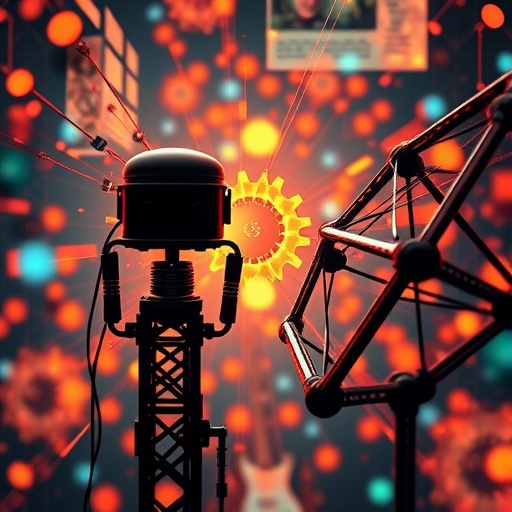A transformative new study from Tulane University has illuminated the remarkable impact of generative AI tools, such as ChatGPT, on workplace creativity. The research, soon to be featured in the esteemed Journal of Applied Psychology, suggests that these innovative technologies can significantly enhance employees’ creative output. However, the findings reveal a caveat: the effectiveness of generative AI is dependent on the users’ ability to engage in critical thinking and reflection regarding their work. In other words, while the tools themselves have immense potential, their promise is only actualized through the active involvement and strategic thinking of the users.
At the core of the study lies a detailed field experiment conducted with a technology consulting firm. By randomly assigning 250 employees to either use ChatGPT or refrain from using it during a typical workweek, the researchers were able to assess the variations in creative performance. Supervisors and independent reviewers evaluated the creativity of the outputs produced by these employees, leading to compelling conclusions that highlight the relationship between AI usage and creative performance.
The results of the study were striking: employees who accessed AI tools such as ChatGPT demonstrated a markedly higher level of creativity, producing more original and useful ideas compared to their counterparts who did not utilize these resources. Yet, the enhancement in creativity was not uniformly observed across all participants. Interestingly, the employees who reaped the most benefits were those who actively engaged with ChatGPT, demonstrating metacognitive behaviors—that is, they were reflective and strategic in how they approached their work. Instead of being passive recipients of AI-generated outputs, these workers took initiative, assessing their objectives and adapting their strategies to optimize the AI’s support in achieving their goals.
Dr. Shuhua Sun, the lead author of the study and a prominent figure at Tulane University’s A. B. Freeman School of Business, emphasized that the mere incorporation of generative AI into the workplace does not guarantee an uptick in creative output. Instead, he pointed out that creativity flourished among employees who effectively utilized metacognitive strategies. These individuals actively analyzed their tasks, monitored their thought processes, and made necessary adjustments to their approaches. Such findings underscore the need for organizations to foster these critical thinking skills in their workforce.
The implications of this research are far-reaching, particularly for businesses looking to harness the power of AI to drive innovation. The conclusion is clear: simply implementing advanced AI tools like ChatGPT is insufficient for boosting creativity. Companies must also invest in developing their employees’ metacognitive capabilities. This means equipping them with skills to critically assess challenges, adapt strategies, and utilize innovative resources — ultimately enabling the workforce to engage more completely with AI technologies.
Dr. Sun elaborated on this notion, stating that even the most sophisticated generative AI systems will not enhance creativity if employees approach their output passively. He advocated for a dual focus among organizations—not only deploying AI technologies but also investing in training that hones metacognitive skills. By promoting a culture of thoughtful, strategic engagement with AI tools, companies can empower their employees to leverage these resources effectively, thus fostering a more creative and innovative work environment.
Moreover, the promising news from the study is that metacognitive skills are not inherent traits but can be cultivated through targeted training programs. The research highlights short training initiatives designed to help workers become more intentional in planning, monitoring, and adapting their work processes. By fostering these capabilities, organizations can significantly enhance their employees’ ability to use AI creatively and productively, ultimately leading to a more innovative workforce.
Metacognitive Skills: A Foundational Element in the AI Era
The study’s implications extend beyond the corporate landscape and tap into the realm of education and policy formation. Dr. Sun and his team advocate for a re-examination of educational priorities, urging educators and policymakers to prioritize the development of metacognitive skills as essential components in preparing the next generation of workers and students for an AI-rich future. Historically, educational systems have placed a heavy emphasis on cognitive skills, frequently overlooking the importance of metacognitive abilities — skills that will take on even greater significance as AI tools become integral to daily work processes.
To ensure that individuals can thrive in symbiosis with AI, Dr. Sun asserts the pressing need to embed metacognitive skill development within educational frameworks and professional training programs. The ability to self-regulate, self-reflect, and strategize in the context of AI-driven environments will become crucial to achieving success. This foundational shift in education can empower future generations with the tools necessary to navigate complexities and foster creativity in innovative ways.
The collaborative effort behind this study involved contributions from renowned institutions, including Renmin University of China, Nanyang Technological University, Rice University, and the Massachusetts Institute of Technology. Together, these scholars highlight a united commitment to understanding the intersection of AI and creativity and underscore the multifaceted nature of this research.
In conclusion, Tulane University’s pioneering study into the role of generative AI tools in enhancing creativity serves as a clarion call for organizations, educators, and policymakers alike. The study makes it clear that the journey toward maximizing AI’s potential is not solely about technological investment; it is fundamentally about nurturing the human skill sets necessary to engage with these advancements critically and creatively. By fostering metacognitive abilities, society can prepare itself for a future where humans and AI not only co-exist but collaborate in the quest for creativity and innovation.
As businesses, educators, and policymakers respond to these findings, a new era of creativity supported by artificial intelligence awaits. Embracing the dual path of investing in advanced AI tools while simultaneously developing the thinking capabilities of individuals offers the clearest route to a more innovative future—one where both humans and machines can thrive side by side.
Subject of Research: People
Article Title: How and for Whom Using Generative AI Affects Creativity: A Field Experiment
News Publication Date: 31-Jan-2025
Web References: DOI link
References: Journal of Applied Psychology
Image Credits: N/A
Keywords
Artificial intelligence, Generative AI, Creativity, Metacognitive skills, Workplace innovation.




